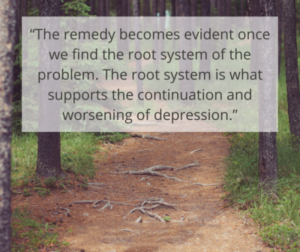Anxiety in the Bible: Why We Worry and How to Overcome It
Our bodies are designed to respond to threats and potential threats to our well-being. If you happen to be biking on a wilderness trail and come across a rattlesnake, your body will respond instinctively before you fully process what’s happening. It’s good that the response is automatic because many situations call for a split-second response.
While this ability to respond to threats and dangers is helpful, it can also work against us. It’s one thing for your fight-or-flight response to kick in when you’re faced with a fast-moving car or a deadly snake, and another when you’re on a first date or responding to a question asked in a meeting or classroom. At those times, feeling anxious can be a disservice. For those seeking support in managing such anxiety, Newport Beach Christian Counseling can offer guidance and strategies to help navigate these moments.
How Anxiety Affects Us
When you feel anxious, that affects your mind, body, emotions, and spirit. This is a reciprocal relationship because these other things can also affect whether you feel anxious or not. For instance, if you haven’t had a good night’s rest, or you’ve had a lot of coffee, it affects your emotional regulation, and caffeine can make you more anxious.
 Anxiety has a physiological effect on a person. That’s a way of saying that it changes how your body functions, and how you experience the world around you. Anxiety can also affect your life as a Christian in several ways. Physically, anxiety can lead to shortness of breath, trembling, shaking, heart palpitations, sweating, tension headaches and muscle pain, insomnia and fatigue, stomach problems, or feeling lightheaded.
Anxiety has a physiological effect on a person. That’s a way of saying that it changes how your body functions, and how you experience the world around you. Anxiety can also affect your life as a Christian in several ways. Physically, anxiety can lead to shortness of breath, trembling, shaking, heart palpitations, sweating, tension headaches and muscle pain, insomnia and fatigue, stomach problems, or feeling lightheaded.
These physical effects can feel uncomfortable in the moment, and they can be compounded by the emotional effects of anxiety. Anxiety can make you have mood swings and become more emotionally reactive. Your anxiety can also negatively affect your self-esteem, making you more sensitive to stress. It’s common for anxiety to make you feel restless and on edge.
Anxiety also affects your mind. While activating the fight-or-flight response boosts your ability to respond to physical threats, it can also make it harder to think and process things rationally. People who feel anxious will often report feeling like they’re spinning their mental wheels, but not really going anywhere. Anxiety will leave you with racing thoughts, difficulty concentrating, and issues such as forgetfulness.
Other mental effects of anxiety include the fact that it may distort clear thinking. Sometimes anxiety leads to large leaps of logic. You may become fixated on the worst-case scenarios, in a cognitive distortion called catastrophizing. Anxiety may also result in nightmares and intrusive thoughts, leaving you on edge and hypervigilant about possible threats.
Anxiety can thus leave you feeling emotionally distressed, and not thinking clearly, and it can also strain your body in the long term. However, these aren’t the only ways that anxiety can affect you. Anxiety can also affect you spiritually. It can make spiritual disciplines like prayer, worship, or reading Scripture feel either empty or somewhat forced. You might also feel guilty or ashamed of being anxious, presuming it means you lack faith.
Not only does anxiety possibly induce feelings of shame and guilt, but it can also leave you experiencing doubt concerning whether God is in control, whether He loves you, or is present with you in your circumstances. Anxiety can leave you feeling spiritually inadequate.
Anxiety in the Bible
There are many reasons why we worry. We live in a world that’s filled with uncertainties, and dangers do exist. The Bible is a collection of stories, poems, and letters, written by people but guided by God’s Spirit. It deals with human realities, describing everyday situations that you or I could find ourselves in. We can find our experiences reflected there, and we can expect the Lord to speak clearly through it to guide us.
There are many expressions of anxiety in Scripture, by people who find themselves facing war, being betrayed by loved ones, or facing uncertainty about their safety and well-being. David’s thoughts trouble him and he is distraught because of what his enemies are saying (Psalm 55:1-5, NIV). Moses is dismayed and anxious about being called to lead God’s people (Exodus 3-4). Martha is anxious about being a good host to Jesus (Luke 10:38-42).
Anxiety is a common human experience. It occurs in any situation you can think of. Anxiety, fear, and worry are so common that many verses address them. The call to not be afraid or anxious echoes through many passages of the Bible precisely because we are so prone to these things. The Lord tells the Israelites to “fear not” and “be not dismayed” (Isaiah 41:10, ESV), and Jesus says, “Do not be anxious” (Matthew 6:25, ESV).
 Scripture offers many encouragements and reminders to help us deal with our anxieties. Yes, our circumstances may seem uncertain, but God cares for us. Jesus reminds His followers about God’s care for all His creation, including us, and that is why we ought not to be anxious (Matthew 6:25-34). Instead of carrying them ourselves, we are to cast our anxieties on God because He cares for us (1 Peter 5:7, ESV).
Scripture offers many encouragements and reminders to help us deal with our anxieties. Yes, our circumstances may seem uncertain, but God cares for us. Jesus reminds His followers about God’s care for all His creation, including us, and that is why we ought not to be anxious (Matthew 6:25-34). Instead of carrying them ourselves, we are to cast our anxieties on God because He cares for us (1 Peter 5:7, ESV).
Instead of relying on our own strength and wisdom, we are called to trust in God. One Psalm says, “Some trust in chariots and some in horses, but we trust in the name of the Lord our God. They collapse and fall, but we rise and stand upright.” (Psalm 20:7-8, ESV) God, as the one who has all things in His hands, and who sees the end from the beginning, is more trustworthy than anything or anyone else, including ourselves (Proverbs 3:5-6).
One of the more famous passages about anxiety comes from the letter the apostle Paul wrote to the Christians in the city of Philippi. Paul, who was writing from jail, wanted to encourage them to remain steadfast in the Lord, and for them to imitate models of faithfulness. He instructs them on how to deal with their anxieties, saying:
The Lord is at hand; do not be anxious about anything, but in everything by prayer and supplication with thanksgiving let your requests be made known to God. And the peace of God, which surpasses all understanding, will guard your hearts and your minds in Christ Jesus – Philippians 4:5-7, ESV
Instead of being anxious, the believer should take the things that are causing concern and pray about them to God. The Lord’s promised response is to guard the believer’s heart and mind, securing their sense of peace in Christ Jesus.
Overcoming Anxiety
Anxiety can be overcome using several effective strategies. There are ways of coping with anxiety, managing it, and bringing it under control. As anxiety can be caused by a variety of factors, and affects you in different ways, using several complementary strategies may be the most effective way to address it.
Some of the strategies you can implement to handle anxiety in your life include the following:
Exercise
Getting regular exercise can help to reduce your levels of stress as well as make you feel good. Exercise can also give you a way to focus on something other than your anxious thoughts and worries.
Self–expression
 Anxiety can eat you up inside if you keep it bottled up. That’s one reason praying about your anxieties makes a difference. Putting your anxieties into words helps you to start getting a handle on them. Sometimes you gain a clearer picture of what’s at the root. By placing it before the Lord and leaving it to Him, it gives room for Him to give you comfort and peace.
Anxiety can eat you up inside if you keep it bottled up. That’s one reason praying about your anxieties makes a difference. Putting your anxieties into words helps you to start getting a handle on them. Sometimes you gain a clearer picture of what’s at the root. By placing it before the Lord and leaving it to Him, it gives room for Him to give you comfort and peace.
Other forms of self-expression that can help you deal with anxiety include journaling, and using art. When you journal, you can also gain a deeper awareness of patterns. Also, you can record your prayers and reflections on Scripture and how the Lord has answered your prayers.
Meditating on Scripture
If you allow it, Scripture can reshape the way you see things, including yourself and your circumstances. Meditating on Scriptures like Psalm 23, Psalm 46:1-3, or Matthew 6:25-34 can help to calm you, remind you of how the Lord is with you, and how there is no real reason to fear or worry.
As you meditate on Scripture, you can remind yourself of certain truths, and also reframe your experiences. There are stories of Bible heroes being anxious, so you’re not alone. You’ll also encounter the Lord’s strength being perfected in your weakness (2 Corinthians 12:7-10) and come to an understanding that anxiety doesn’t define you. You can keep moving forward despite being anxious.
Relaxation techniques and self–care
 Other forms of self-care aside from exercise include ensuring that you get good sleep, as this helps you with emotional regulation. Take breaks, as that helps you to reduce stress and avoid being emotionally reactive.
Other forms of self-care aside from exercise include ensuring that you get good sleep, as this helps you with emotional regulation. Take breaks, as that helps you to reduce stress and avoid being emotionally reactive.
Some relaxation techniques you can implement to reduce anxiety include deep breathing and progressive muscle relaxation. The latter helps to reduce muscle tension, which can be an effect of anxiety, and the former can help calm you down in the event you find yourself feeling anxious.
Seek help
Anxiety can be overwhelming, and it can isolate you. You don’t have to deal with it alone. You can share what you’re going through with mature and trusted believers or seek professional help from a Christian counselor. Through talk therapy, and with medication where that’s helpful and prescribed by a doctor, you can bring your anxiety under control.
Anxiety doesn’t have to define you, and it certainly doesn’t disqualify you from a deep and fulfilling relationship with the Lord. Reach out to Newport Beach Christian Counseling today if you would like to talk to a Christian counselor to work through your struggles. We have appointments ready with trained Christian therapists in our practice.
“Stressed”, Courtesy of Uday Mittal, Unsplash.com, CC0 License; “Stressed”, Courtesy of Christian Erfurt, Unsplash.com, CC0 License; “Faith Over Fear”, Courtesy of Sincerely Media, Unsplash.com, CC0 License; “Studying the Word”, Courtesy of Rachel Strong, Unsplash.com, CC0 License

 While pop culture has often modeled the “strong, silent man” as the ideal, no person can carry their burdens alone. Regular therapy appointments build the stress muscles like lifting weights builds your other muscles. Handling and offloading stress appropriately will lead to greater peace in your life.
While pop culture has often modeled the “strong, silent man” as the ideal, no person can carry their burdens alone. Regular therapy appointments build the stress muscles like lifting weights builds your other muscles. Handling and offloading stress appropriately will lead to greater peace in your life. Massage is a great way to relax the body. Treat yourself to a 30- or 60-minute massage. It can be exactly what the body needs to calm itself down naturally. Not only does massage help calm inflammation throughout the body, but it also resets both the sympathetic and parasympathetic nervous systems.
Massage is a great way to relax the body. Treat yourself to a 30- or 60-minute massage. It can be exactly what the body needs to calm itself down naturally. Not only does massage help calm inflammation throughout the body, but it also resets both the sympathetic and parasympathetic nervous systems. Being constantly told to look at the bright side of things or think positively is not helpful. Depression is not a choice or a mood. When you are depressed, you can’t control your thoughts. Your thoughts control you.
Being constantly told to look at the bright side of things or think positively is not helpful. Depression is not a choice or a mood. When you are depressed, you can’t control your thoughts. Your thoughts control you. When a loved one is in pain, the vulnerability and emotional pain you go through can be debilitating. The feeling of helplessness can be all-consuming, paralyzing you into inaction. In those situations, great courage and fortitude are required to push through those feelings of helplessness and instead focus on being supportive and present for our loved ones.
When a loved one is in pain, the vulnerability and emotional pain you go through can be debilitating. The feeling of helplessness can be all-consuming, paralyzing you into inaction. In those situations, great courage and fortitude are required to push through those feelings of helplessness and instead focus on being supportive and present for our loved ones. anxiety
anxiety
 Medications such as antidepressants may be prescribed to help to cope with depression and get the body and mind back where they need to be. Usually, there are some side effects from the medication, and so the psychotherapist will likely adjust the type of medication and its dosage to meet the client’s needs.
Medications such as antidepressants may be prescribed to help to cope with depression and get the body and mind back where they need to be. Usually, there are some side effects from the medication, and so the psychotherapist will likely adjust the type of medication and its dosage to meet the client’s needs. The death of a loved one or the loss of a long-cherished dream break you up inside, and gush forth tears, sadness and anger intermingled. Our emotions alert us to what’s going on inside of us and how we’re experiencing the world, so they are helpful for everyday life.
The death of a loved one or the loss of a long-cherished dream break you up inside, and gush forth tears, sadness and anger intermingled. Our emotions alert us to what’s going on inside of us and how we’re experiencing the world, so they are helpful for everyday life. Have you ever scared yourself because of how you reacted to a situation? For example, your child or spouse did something that annoyed you, and your reaction was so over the top that you found yourself shocked and scrambling to apologize and figure out where that reaction even came from.
Have you ever scared yourself because of how you reacted to a situation? For example, your child or spouse did something that annoyed you, and your reaction was so over the top that you found yourself shocked and scrambling to apologize and figure out where that reaction even came from.
 However, because anger has a physiological effect, being angry a lot because you have a low anger threshold means that you’re putting your health at risk. Chronic anger increases your risk of stroke, it weakens your immune system, not to mention higher risks of high blood pressure, heart problems, headaches, skin disorders, and digestive problems.
However, because anger has a physiological effect, being angry a lot because you have a low anger threshold means that you’re putting your health at risk. Chronic anger increases your risk of stroke, it weakens your immune system, not to mention higher risks of high blood pressure, heart problems, headaches, skin disorders, and digestive problems. Marriage is the joining of two people into one flesh. “For this reason, a man will leave his father and mother and be united to his wife, and they will become one flesh” (Genesis 2:24). This union is something that Paul called a “profound mystery” (Ephesians 5:32).
Marriage is the joining of two people into one flesh. “For this reason, a man will leave his father and mother and be united to his wife, and they will become one flesh” (Genesis 2:24). This union is something that Paul called a “profound mystery” (Ephesians 5:32). Presumably, husbands being told to love their wives is something that needed to be said a few times. Loving your spouse means listening to them (really listening), being considerate of their needs, not keeping records of wrong, not being rude or self-seeking, seeking to protect and trust your spouse (1 Corinthians 13).
Presumably, husbands being told to love their wives is something that needed to be said a few times. Loving your spouse means listening to them (really listening), being considerate of their needs, not keeping records of wrong, not being rude or self-seeking, seeking to protect and trust your spouse (1 Corinthians 13). Another passage warns “Can a man scoop fire into his lap without his clothes being burned? Can a man walk on hot coals without his feet being scorched? So is he who sleeps with another man’s wife” (Proverbs 6:27-29). Entering an intimate relationship with someone other than your wife can lead to tremendous pain for everyone involved; as alluring as it may seem, it’s just not worth it.
Another passage warns “Can a man scoop fire into his lap without his clothes being burned? Can a man walk on hot coals without his feet being scorched? So is he who sleeps with another man’s wife” (Proverbs 6:27-29). Entering an intimate relationship with someone other than your wife can lead to tremendous pain for everyone involved; as alluring as it may seem, it’s just not worth it. Some friends. Are. The. Worst. They don’t encourage right behavior and instead enable their friend’s worst impulses. “Do not be misled,” Paul tells a young church, “Bad company corrupts good character” (1 Corinthians 15:33). Some friends won’t caution you when you’re going astray, nor will they invest in your marriage by encouraging you to be a better husband.
Some friends. Are. The. Worst. They don’t encourage right behavior and instead enable their friend’s worst impulses. “Do not be misled,” Paul tells a young church, “Bad company corrupts good character” (1 Corinthians 15:33). Some friends won’t caution you when you’re going astray, nor will they invest in your marriage by encouraging you to be a better husband. Cell phones and the internet have made it easy for anyone to make a few clicks and be instantly connected with someone else. Pornography also has different channels of enticing many others, for example: collect calls with random call girls, strip clubs, movies, magazines, TikTok, apps, games, etc. Porn is not just on the internet, it is everywhere.
Cell phones and the internet have made it easy for anyone to make a few clicks and be instantly connected with someone else. Pornography also has different channels of enticing many others, for example: collect calls with random call girls, strip clubs, movies, magazines, TikTok, apps, games, etc. Porn is not just on the internet, it is everywhere. So, what can we do? Connect with the same gender consistently and constantly. In 2 Samuel 11, you will read the story of King David who took time off from his busy military campaign. He sent his army to go off to battle while he remained in the palace all alone. We know from Genesis that it’s not good for man to be alone.
So, what can we do? Connect with the same gender consistently and constantly. In 2 Samuel 11, you will read the story of King David who took time off from his busy military campaign. He sent his army to go off to battle while he remained in the palace all alone. We know from Genesis that it’s not good for man to be alone. A man of God will help another man become a man of God. This is key in many support groups dealing with addiction because you can’t have a mixed-gender group talking about porn addiction. It wouldn’t be appropriate. Men wouldn’t feel comfortable describing their fetishes with another woman when an actual woman is staring right at them.
A man of God will help another man become a man of God. This is key in many support groups dealing with addiction because you can’t have a mixed-gender group talking about porn addiction. It wouldn’t be appropriate. Men wouldn’t feel comfortable describing their fetishes with another woman when an actual woman is staring right at them. This is challenging because we don’t want to be called to a different standard, so we want to keep those defenses up. However, in my many years as a professional, and can only tell you that the secret to the success of many leaving this addiction behind is simply getting constant and consistent training from someone who has deep convictions on this issue.
This is challenging because we don’t want to be called to a different standard, so we want to keep those defenses up. However, in my many years as a professional, and can only tell you that the secret to the success of many leaving this addiction behind is simply getting constant and consistent training from someone who has deep convictions on this issue. There are a variety of causes of depression and reasons why people become depressed. A mixture of genetics, brain chemistry, and family history each play a role in developing depression. Certain individuals may have a biological predisposition for developing mood issues when faced with overwhelming stressors.
There are a variety of causes of depression and reasons why people become depressed. A mixture of genetics, brain chemistry, and family history each play a role in developing depression. Certain individuals may have a biological predisposition for developing mood issues when faced with overwhelming stressors. There is a wide range of assorted symptoms involved in each individual experience of depression. Each person will have a different combination of symptoms which fit one or more types or patterns of depressions.
There is a wide range of assorted symptoms involved in each individual experience of depression. Each person will have a different combination of symptoms which fit one or more types or patterns of depressions.

 Some people struggle with deep-rooted anger that is just constantly bubbling under the surface and is invisible to the naked eye. However, this is also very damaging to emotional and physical health, and will eventually lead to a massive outburst, or long-term issues, that will fail to be resolved until the underlying anger is taken care of.
Some people struggle with deep-rooted anger that is just constantly bubbling under the surface and is invisible to the naked eye. However, this is also very damaging to emotional and physical health, and will eventually lead to a massive outburst, or long-term issues, that will fail to be resolved until the underlying anger is taken care of. Perhaps you can see that your anger is affecting those closest to you, or that your underlying issues are causing you to burst out in irrational behavior on a regular basis these could be clear indicators that it would be wise to seek out help in this area. If you feel as if your anger is growing uncontrollably, it could certainly be time to reach out to a counselling service for assistance.
Perhaps you can see that your anger is affecting those closest to you, or that your underlying issues are causing you to burst out in irrational behavior on a regular basis these could be clear indicators that it would be wise to seek out help in this area. If you feel as if your anger is growing uncontrollably, it could certainly be time to reach out to a counselling service for assistance. As Christians, we should have our anger in check at all times. Of course, there are things in this world which may cause you to feel “righteous anger” of some kind, but this is not the most common type of rage that people struggle with.
As Christians, we should have our anger in check at all times. Of course, there are things in this world which may cause you to feel “righteous anger” of some kind, but this is not the most common type of rage that people struggle with. One way of tackling anger is to really get to the root of what is triggering such a visceral emotional response. Some triggers may be more avoidable than you think, and may simply require a bit of extra forethought.
One way of tackling anger is to really get to the root of what is triggering such a visceral emotional response. Some triggers may be more avoidable than you think, and may simply require a bit of extra forethought.